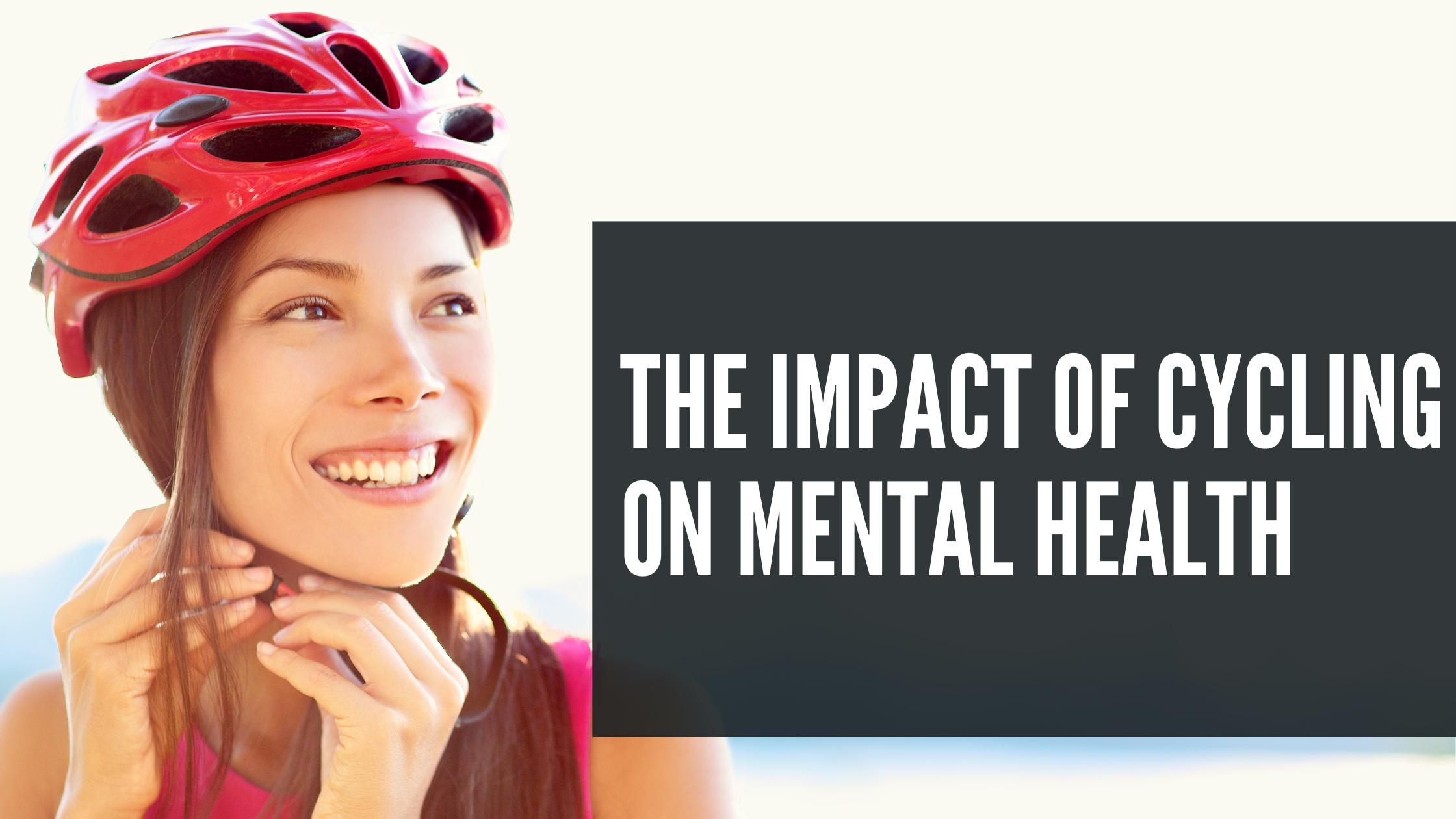Cycling isn't just great for your physical health—it's also a powerful tool for improving mental well-being. Whether you're pedaling through the park, commuting to work, or hitting the trails, cycling offers numerous benefits for your mind. Let’s explore how cycling can boost your mental health and why you should make it a part of your routine.
1. Reduces Stress and Anxiety
Cycling helps to reduce stress and anxiety by promoting the release of endorphins, the body's natural mood lifters.
Benefits:
- Endorphin Release: Exercise, including cycling, triggers the release of endorphins, which help alleviate stress and create feelings of happiness.
- Focus on the Present: The rhythmic nature of cycling encourages a meditative state, helping you focus on the present moment and reduce anxious thoughts.
- Outdoor Connection: Being outdoors and in nature while cycling can have a calming effect, reducing stress levels and promoting relaxation.
2. Boosts Mood and Energy Levels
Regular cycling can significantly improve your mood and increase your energy levels.
Benefits:
- Increased Serotonin: Cycling boosts the production of serotonin, a neurotransmitter that plays a key role in mood regulation.
- Fight Depression: Regular physical activity, like cycling, is shown to reduce symptoms of depression by increasing the availability of mood-regulating chemicals in the brain.
- Natural Energy Boost: The cardiovascular benefits of cycling improve your overall energy levels, making you feel more awake and alert throughout the day.
3. Enhances Cognitive Function
Cycling can have a positive impact on brain health and cognitive function.
Benefits:
- Improved Memory: Regular cycling has been linked to improved memory and cognitive functions due to increased blood flow to the brain.
- Boosts Creativity: The combination of physical activity and exposure to different environments while cycling can enhance creative thinking and problem-solving skills.
- Mental Clarity: The physical activity associated with cycling helps clear the mind, leading to improved focus and concentration.
4. Promotes Better Sleep
Good sleep is crucial for mental health, and cycling can help you achieve it.
Benefits:
- Better Sleep Quality: Regular cycling helps regulate your sleep patterns and improves the quality of your sleep.
- Reduced Insomnia: Physical activity like cycling can reduce the symptoms of insomnia and other sleep disorders, leading to more restful nights.
- Natural Sleep Aid: Cycling helps to tire out the body naturally, making it easier to fall asleep and stay asleep.
5. Social Connection and Community
Cycling can also enhance your social life, providing opportunities for connection and community.
Benefits:
- Social Interaction: Joining a cycling club or group can increase your social interactions and build a sense of community.
- Support System: Engaging with other cyclists can provide emotional support and reduce feelings of loneliness.
- Shared Experiences: Cycling with friends or family strengthens bonds and creates shared experiences that boost overall happiness.
Tips for Incorporating Cycling into Your Routine
- Start Small: Begin with short rides and gradually increase your distance as your fitness improves.
- Make It Social: Invite friends or join a cycling group to combine exercise with social interaction.
- Set Goals: Set achievable cycling goals to keep yourself motivated and track your progress.
- Explore New Routes: Keep your rides interesting by exploring new trails and routes.
- Prioritize Safety: Always wear a helmet and follow traffic rules to ensure a safe riding experience.
Key Points:
- Reduces Stress and Anxiety: Promotes endorphin release and outdoor connection.
- Boosts Mood and Energy Levels: Increases serotonin and provides a natural energy boost.
- Enhances Cognitive Function: Improves memory, creativity, and mental clarity.
- Promotes Better Sleep: Regulates sleep patterns and improves sleep quality.
- Social Connection and Community: Encourages social interaction and support.



Share:
Top Bike-Friendly Vacation Destinations
Bike-Friendly Cities in the USA: Where to Go for the Best Cycling Experience